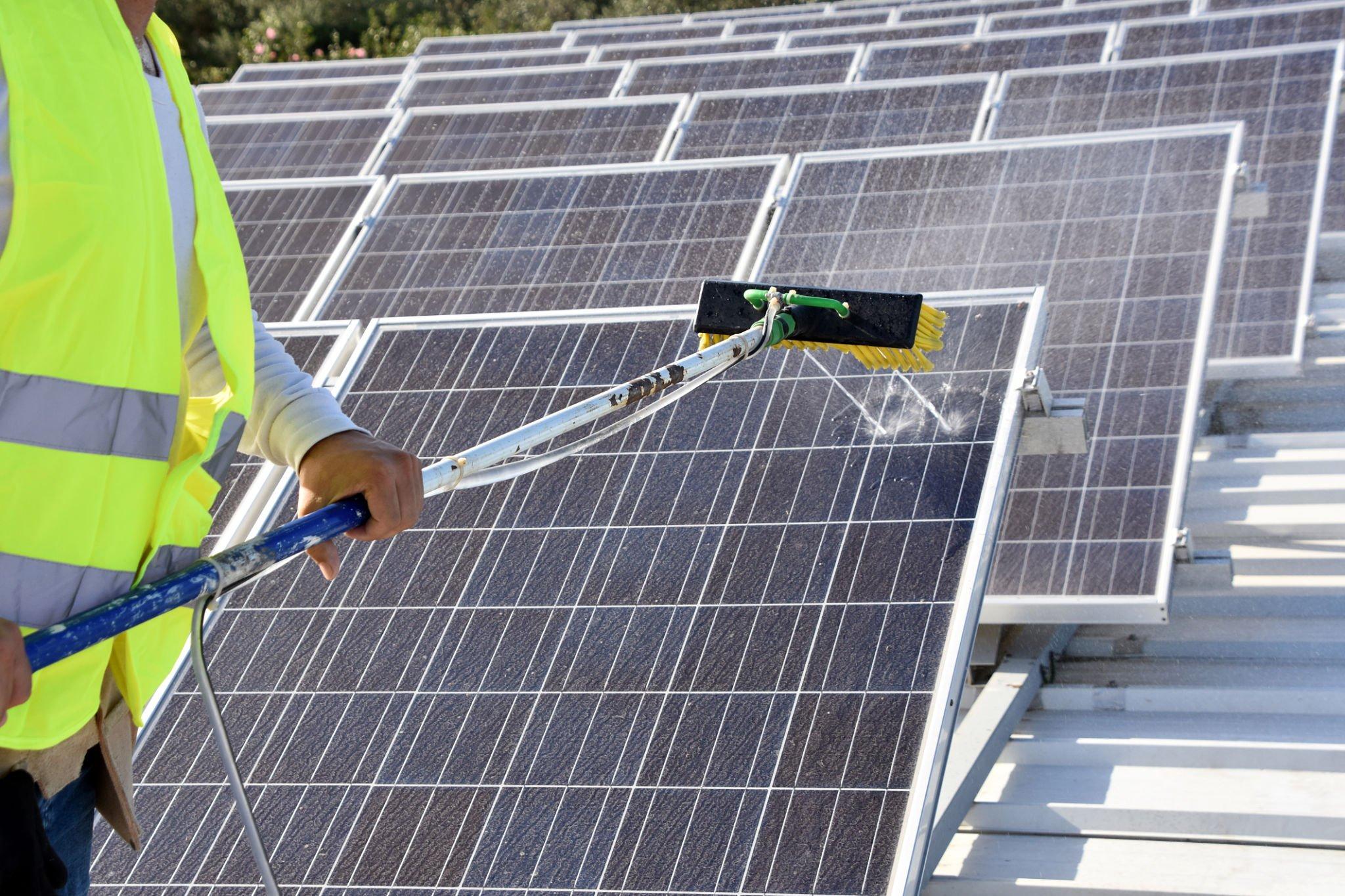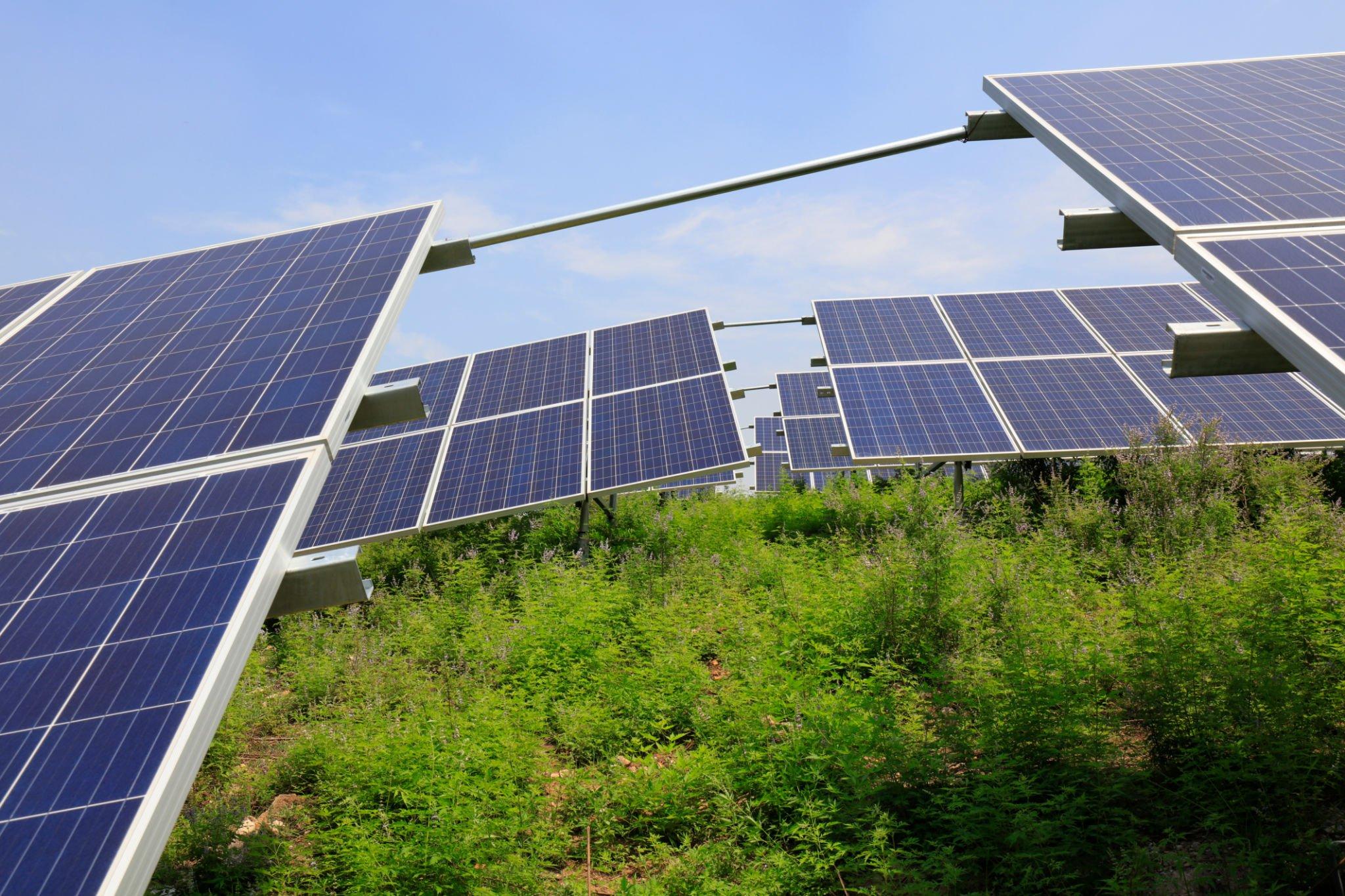
How Do Solar Panels Work? Unlocking the Power of the Sun
Solar panels have revolutionized the way we harness energy from the sun, providing a clean and renewable source of electricity. But how exactly do these remarkable devices work? Let’s dive into the inner workings of solar panels and discover the science behind their power generation:
1. Photovoltaic Effect: At the heart of solar panels lies the photovoltaic effect, a phenomenon that allows them to convert sunlight into electricity. Solar panels are composed of multiple photovoltaic cells made from semiconductor materials, typically silicon. When sunlight strikes these cells, it excites the electrons within the material, causing them to move.
2. Electron Movement: The movement of the excited electrons creates a flow of electrical current. Each photovoltaic cell consists of two layers: the P-type (positive) layer and the N-type (negative) layer. The excited electrons move from the N-type layer to the P-type layer, creating a potential difference or voltage between the two layers.
3. Electric Field Formation: The P-N junction between the two layers of the cell creates an electric field. This electric field helps separate the positively charged holes in the P-type layer from the negatively charged electrons in the N-type layer, preventing them from recombining.
4. Direct Current (DC) Generation: The flow of electrons from the N-type layer to the P-type layer generates direct current (DC) electricity. This DC electricity is the same type of electrical current produced by batteries.
5. Inverter Conversion: Most electrical appliances and power grids operate on alternating current (AC) electricity. To make the electricity generated by solar panels compatible with AC-powered devices, an inverter is used. The inverter converts the DC electricity produced by the solar panels into AC electricity, which can be used to power homes, businesses, and other electrical loads.
6. Grid Interaction (Optional): In grid-connected solar systems, excess electricity produced by the solar panels can be sent back to the utility grid. This process, known as net metering, allows solar panel owners to earn credits for the electricity they generate but do not use. During periods of low sunlight or high electricity demand, electricity can be drawn from the grid to supplement the solar power.
7. Monitoring and Control: Solar panel systems often incorporate monitoring and control devices to track the performance of the system. These devices provide real-time data on energy production, enabling users to monitor the efficiency of their solar panels and optimize energy usage.
Solar panels provide a sustainable and environmentally friendly way to generate electricity. Their ability to harness the sun’s energy through the photovoltaic effect allows for clean and renewable power generation. By embracing solar technology, we can reduce our dependence on fossil fuels, lower carbon emissions, and pave the way for a brighter and greener future.
At Fellow Energy, we specialize in manufacturing high-quality solar panels that harness the power of the sun efficiently and reliably. Our commitment to innovation and sustainability drives us to deliver cutting-edge solar solutions that empower individuals and businesses. By understanding how solar panels work, you can make informed decisions and embrace the limitless potential of solar energy.
Other News
DATA PROTECTION
WEBSITE COOKIE POLICY
Protecting the privacy of visitors to the website operated by Fellow Energy at (www.fellowsolarenergy.com) is one of our organization’s fundamental principles. This Cookie Usage Policy (“Policy”) explains the types of cookies used and their conditions to all website visitors and users.
Cookies are small text files stored on your computer or mobile device by the websites you visit.
They are commonly used to provide you with a personalized experience while using a website, improve the services offered, and enhance your browsing experience. If you prefer not to use cookies, you can delete or block them through your browser settings. However, please note that this may affect your use of our website. Unless you change your cookie settings in your browser, we will assume that you have accepted the use of cookies on this site.
1. WHAT KIND OF DATA IS PROCESSED IN COOKIES?
Cookies on websites collect data related to your browsing and usage preferences on the device you use to visit the site, depending on the type. This data includes information about the pages you access, the services and products you review, your preferred language selection, and other preferences.
2. WHAT ARE COOKIES AND WHAT ARE THEIR PURPOSES?
Cookies are small text files stored on your device or server by websites you visit through browsers. These small text files, which include your preferred language and other settings, help remember your preferences for your next visit to the site and aid us in making improvements to our services to enhance your experience. This allows you to have a better and personalized user experience during your next visit.
The main purposes of using cookies on our website are listed below:
- To improve the functionality and performance of the website to enhance the services provided to you,
- To enhance the website and offer new features through the website, personalized according to your preferences;
- To ensure the legal and commercial security of the Website, you, and the Institution, and prevent fraudulent transactions through the Site;
- To fulfill legal and contractual obligations, including but not limited to those arising from the Law No. 5651 on the Regulation of Publications Made on the Internet and Combatting Crimes Committed through These Publications and the Regulation on the Procedures and Principles Regarding the Regulation of Publications Made on the Internet.
3. TYPES OF COOKIES USED ON OUR WEBSITE
3.1. Session Cookies
Session cookies ensure the proper functioning of the website during your visit. They are used for purposes such as ensuring the security and continuity of our sites and your visit. Session cookies are temporary cookies that are deleted when you close your browser, and they are not permanent.
3.2. Persistent Cookies
These cookies are used to remember your preferences and are stored on your device through browsers. Persistent cookies remain even after you close your browser or restart your computer. These cookies are stored in your browser’s subfolders until they are deleted from your browser settings.
Some types of persistent cookies can be used to offer personalized recommendations based on your purpose of using the Internet Site.
Persistent cookies allow us to determine if a cookie created by our Internet Site exists on your device when you visit our Internet Site again with the same device. If it exists, we understand that you have previously visited the site, and the content that will be delivered to you is determined accordingly, thus providing you with better service.
3.3. Necessary/Technical Cookies
These are essential cookies for the proper functioning of the visited website, ensuring necessary services by allowing access to secure sections of the website, using its features, and navigating through it.
3.4. Analytical Cookies
These cookies collect information about how the website is used, including the frequency and number of visits, and show how visitors arrive at the site. The purpose of using these cookies is to improve the functioning of the website, enhance performance, and determine general trends. They do not contain data that can identify visitors. For example, they may show the number of error messages displayed or the most visited pages.
3.5. Functional Cookies
These cookies remember the choices made by visitors within the site, ensuring convenience for the next visit. The purpose of these cookies is to provide ease of use for visitors. For instance, they prevent the need for the site user to re-enter their password on each page they visit.
3.6. Targeting/Advertising Cookies
They measure the effectiveness of the displayed advertisements and calculate how many times advertisements are viewed. These cookies aim to present personalized advertisements according to the interests of visitors.
Likewise, they identify specific interests in the navigation of visitors and present suitable content. For instance, they prevent the same ad from being shown to a visitor in a short period.
4. HOW TO MANAGE COOKIE PREFERENCES?
You can change your preferences regarding cookie usage, block or delete cookies by changing your browser settings.
Many browsers offer options to accept or reject cookies, accept only certain types of cookies, or receive a warning from the browser when a website requests to store cookies on your device.
Furthermore, it is possible to delete previously stored cookies from your browser.
If you disable or reject cookies, you may need to manually adjust certain preferences, and some features and services on the website may not function properly as we won’t be able to recognize and associate your account. You can change your browser settings by clicking on the relevant link from the table below.
5. EFFECTIVENESS OF THE WEBSITE PRIVACY POLICY
The Internet Site Privacy Policy is dated 15/08/2023. If the entire Policy or specific articles are renewed, the effective date of the Policy will be updated. The Privacy Policy is published on the Institution’s website (www.fellowsolarenergy.com) and is made accessible to the relevant individuals upon their request.



